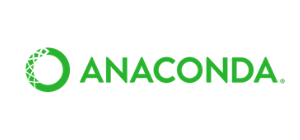
Be a Data Scientist!
Training led by Industry Professionals!In this course you will learn about machine learning algorithms and its applications. Further you will also be guided how to use the machine learning algorithms in Python. This course will cover data sets from multiple domains and how to apply Machine Learning algorithms on the available data, how to get value out of Machine Learning algorithms, and how to present the output of those algorithms.
By the end of the course, you will have enough knowledge and hands-on expertise in Python to use and apply them in the real world around you. Also, you will be able to get prepared for certifications of Data Camp and Cognitive AI.

Schedule
Starting
To be announced soon
Duration
8 weeks
Timings
To be announced soon
Remaining
To be announced soon
Meet the Instructors!
Meet the trainers of this course who are Data Science Experts!
Course Outline
Week 1
| Basics of Data Science Flow |
| Anaconda Installation |
| Intro to Jupyter Notebook |
| Intro to Python |
| Python Objects & Data Structure |
| Subsetting (Strings, Lists, Dictionaries) |
| Python Comparison Operators |
| Python Statements |
| Methods & Functions |
| Importing Data in Python |
| NumPy & Pandas Basics in Python |
| Subsetting Dataframes in Pandas |
| Data Aggregation using Group By, Pivot and Melt |
| Hands-On Assignment of Python |
Week 2
| Interactive Discussions on Last Weeks Assignments |
| Types of Variables |
| Data Visualizations (Scatter plot, Histogram, Bar plots, Line plots, Heat maps) |
| Data Centricity (Mean, Modes, Median, STD, Variance, Interquantile Range). |
| Box plot |
| Data Transformation (Log, Natural Log, Min Max ) |
| Data Cleaning in Python |
| Visualization on Matplotlib |
| Visualization on Seaborn |
| Exploratory Data Analysis of Titanic dataset |
| Feature Engineering |
| Techniques of Filling Missing values in EDA |
| Correlation Matrix |
| Hands-on Assignment of EDA |
Week 3
| Interactive Discussions on Last Weeks Assignments |
| What is Probability. |
| Conditional Probability (Disjoint Events + General Addition Rule). |
| Dependence vs Independence |
| Probability Trees & Bayesian Inference with their examples. |
| Machine Learning Basics |
| Machine Learning Playground |
| Supervised Learning. |
| Train Test Splitting |
| Overfitting vs Underfitting |
| Cross Validation using K-folds |
| Linear Regression |
| Gradient Descent, Ordinary Least Squares |
| Project-1 Assigned to Students |
Week 4
| Interactive Discussions on Project |
| Multivariate Regression |
| Residual Plots, R square, Adjusted R Square |
| Polynomial Regression |
| Model Complexity, Model Selection |
| Lasso Regularization |
| Ridge Regularization |
| Classification |
| Logistic Regression. |
| Confusion Matrix. |
| True Positive, True Negative, False Positive , False Negative. |
| Precision, Accuracy, Recall, F Measure. |
| ROC Curve, AUC, TPR, FPR |
| Project-2 Assigned to Students |
Week 5
| Interactive Discussions on Project |
| Decision Trees. |
| Information Gain, Gini Index, Chi Square |
| Random Forest. |
| Grid Search CV of Random Forest Hyper-parameters |
| What is Boosting |
| What is Bagging |
| AdaBoost on Python |
| Multi-Classification and Analyzing its Confusion Matrix |
| Unsupervised Learning |
| Clustering |
| K-Means algorithm |
| Elbow Analysis, Internal Indexes, Silhouette Score |
| Project-3 Assigned to Students |
Week 6
| Interactive Discussions on Project |
| External Indexes, Adjusted Rand Index |
| Cluster Profiling using Radar Chart |
| Feature Scaling |
| DBSCAN Algorithm |
| Cluster Validation using DBCV |
| Hierarchical clustering |
| Average vs Complete vs Ward linkage |
| Dendrogram Creation and Reading clusters |
| External Indexes, Adjusted Rand Index |
| Hierarchical clustering Use Cases |
| Association Rules |
| Apriori Algorithm |
| Support, Confidence, Lift, Leverage, Conviction |
Week 7
| Interactive Discussions on Project |
| Visualizing Association Rules |
| Network Graph Theory |
| Social Network Analysis by Network Graph |
| Dimensionality Reduction Concept |
| Principal Component Analysis (PCA) |
| Principal Vectors/Components |
| Composite Features |
| Maximal Variance |
| Info Loss and Principal Component Analysis |
| Image Classification using PCA |
| Model Deployment Basics |
| Flask App Introduction |
| Model Deployment on Flask App |
Week 8
| Data Science Test |
| Project & Presentation |
| Self learning Path Guidance |
Tools
Pricing
Following is price for this extensive training on Data Science
Individual
Group of Two
Group of Three
Group of Four
Frequently Asked Questions
Who should attend the course?
Graduate or Masters Students with Statistics, CS or Mathematics background who want to start their career in the Data Science domain
People who are working in the BI domain and want to advance their career in the field of Data Science
Executive who want to build a Data Science department in their start-ups/organizations
What is the timing of the course?
Duration: 8 weeks
Class Days: Weekdays (Mon – Fri)
Timings: 07:00 PM – 09:00 PM
Who are the Instructors?
How much hands-on will be performed in this course?
Since our courses are led by Industry Experts so it is made sure that content covered in course is designed with hand on knowledge of more than 70-75 % along with supporting theory.
What are the PC requirements?
For Data Science Professional course, you need to have a PC with minimum 4GB RAM.
Will I get a certificate after this course?
Yes, you will be awarded with a course completion certificate by Dice Analytics. We also keenly conduct an annual convocation for the appreciation and recognition of our students.
Can I get a job after this course?
Since our instructors are industry experts so they do train the students about practical world and also recommend the shinning students in industry for relevant positions.
Reserve your Seat
You can reserve your seat by filling the form below





